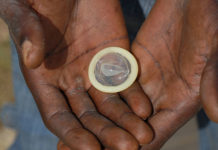While this doesn’t compare to the Benghazi terrorist attacks, here’s yet another State Department scandal that occurred under Hillary Clinton; the agency blew $18.5 million to renovate a prison in Afghanistan that remains unfinished and unused years after the U.S.-funded work began.
It gets better; the State Department officer overseeing the multi-million-dollar boondoggle was corrupt and convicted for accepting bribes from an agency contractor, according to a scathing report issued by the Special Inspector General for Afghanistan Reconstruction (SIGAR). With that kind of supervision, is it any wonder that only half the contracted work got done and that it was subsequently determined to be defective by an independent firm. This includes failure to backfill trenches, improper roof flashing, soil settlement issues and the failure to connect six back-up generators to the prison’s power grid.
Meanwhile, the Afghan compound, Pol-i-Charkhi prison, remains empty after American taxpayers doled out all that cash to fix it. Built in 1973, the jail is Afghanistan’s largest correctional facility and is supposed to house about 5,000 prisoners. The Soviet Union funded the original structure, which was built by a contractor from India. In the summer of 2009 the State Department awarded a $20.2 million renovation gig to Afghanistan-based Al-Watan Construction Company (AWCC). The money flowed through the agency’s Bureau of International Narcotics and Law Enforcement Affairs (INL), which gets billions annually from congress to combat international crime and illegal drugs. In fiscal year 2013 more than $600 million went to Afghanistan to strengthen its justice and corrections systems and renovate prisons in high-insurgent areas, the INL Budget Guide shows.
In the case of Pol-i-Charkhi, the millions provided by Uncle Sam were supposed to reconfigure prisoner holding areas into smaller cells so that it could house a larger population. Each cell was to have a sink and one or more eastern-style toilet depending on cell size. The renovation contract also called for electrical and plumbing improvements, remodeling several structures including the prison industries building and kitchen facilities, building two septic/leach field systems and procuring and installing six refurbished back-up power diesel generators.
But more than five years and $18.5 million later only half of the work has been completed according to contract requirements, the SIGAR audit states, and the deal has been “terminated for convenience.” Furthermore, the work that has been done is shoddy and fails to meet the standards set by the original agreement. It will cost millions more to right this wrong, according to the State Department, which estimates around $11 million to finish renovations and another $5 million to construct a wastewater treatment plant.
This doesn’t even include three separate “capital improvement projects” at the same Afghan prison that cost American taxpayers an additional $5.3 million. It appears that those deals ran into some trouble as well because the SIGAR report says they’ve been transferred to “Afghan prison authorities.” The projects include a potable water tower, commercial power upgrade and a new staff barracks. Two separate Afghan firms—Omran Consulting and Construction Company and Afghanistan Rehabilitation and Architecture Organization—got the State Department contracts to do the work.
The scandalous prison deals are part of a broader problem involving the free-flow of U.S. dollars to controversial Afghanistan causes. Last fall Judicial Watch reported that, despite multiple warnings of fraud and corruption inside the Afghan Ministry of Public Health, the U.S. keeps sending hundreds of millions of dollars to support the Islamic republic’s scandal-plagued healthcare system. Months earlier JW also reported that the U.S. Army refuses to suspend Afghanistan reconstruction contracts with dozens of companies tied to al Qaeda and the Taliban out of fear that it would violate their “due process rights.” The deals are part of the United States’ whopping $89.5 billion Afghanistan reconstruction effort.






























